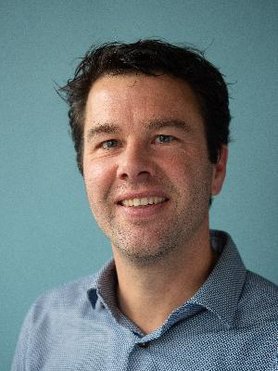

Dr.ir. J.M. (Martin) Bloemendal
Dr.ir. J.M. (Martin) Bloemendal
Profile
Research
The subsurface plays a crucial and growing part in sustainably cooling and heating buildings. My vision is that the enormous potential of this source of renewable energy must be put to is maximum use and must be available for future generations.
I am a specialist in Underground Thermal Energy Storage (UTES) and work on various studies on utilization of sustainable heat by means of seasonal storage in the subsurface. In these endeavors I always considers the system as a whole, which means not only the subsurface system, but also consumers and the required facilities to utilize the available heat. That is why I also have extensive knowledge of related and complementary techniques (ranging from well/borehole drilling and completion technology to heat pump, building facilities and control). My focus is not on the technical aspects only; I also work on organizational and policy-based issues concerning sustainable heating and cooling, as these are key for optimal and sustainable utilization of subsurface resources in practice. At TU Delft I work on various projects to further develop UTES and teach courses at various levels and faculties.
Next to my appointment at Delft University of Technology I have leading position on UTES at TNO, the Dutch Geological Survey. The combination TNO-TU Delft allows me to develop proof of concept of new ideas at the university and subsequently implement these in pilot projects with industry in TNO projects (bridging science to practice).
Sustainable energy has received substantial attention over the last years/decades. Heat is the largest part of the worldwide energy requirement (space heating/cooling, industry, etc.). As with many other renewable or sustainable energy sources, also with heat, the biggest challenge is dealing with the variability in the availability and demand. Heat storage is one of the major solutions to match heat availability to demand. Aquifer Thermal Energy Storage (ATES) and Borehole heat exchangers are, therefore, among the important geothermal energy technologies needed to utilize sustainable heating and cooling systems of buildings – and in particular, provides cheap and large scale storage. Both, high quality research and education as well as large scale adoption of UTES technology are needed during the coming decades at national and international level.
Scope of research:
- Optimal and sustainable use of subsurface
- Integration of UTES (subsurface system) to the building facilities / district heating network (control and optimisation)
- Well/borehole technologies (drilling, completion)
- Spatial planning and governance/legislation
- Potential mapping and adoption
- Barrier analysis and solutions
Expertise
Publications
-
2024
High-Temperature Aquifer Thermal Energy Storage (HT-ATES) system for research development and demonstration on the TU Delft campus
Philip Vardon / Martin van der Schans / Alexis Koulidis / Tessel Grubben / Stijn Beernink / Martin Bloemendal
-
2024
Shallow geothermal energy systems for district heating and cooling networks
Review and technological progression through case studies
João S. Figueira / Alejandro García Gil / Ana Vieira / Apostolos K. Michopoulos / David P. Boon / Fleur Loveridge / Francesco Cecinato / Martin Bloemendal / Philip J. Vardon / More Authors -
2024
Uni-directional ATES in high groundwater flow aquifers
Valerio Silvestri / Giovanni Crosta / Alberto Previati / Paolo Frattini / Martin Bloemendal
-
2023
Heat losses in ATES systems
The impact of processes, storage geometry and temperature
Stijn Beernink / Niels Hartog / Philip J. Vardon / Martin Bloemendal -
2022
Aquifer thermal energy storage triplet: Moving towards self-sufficient space heating and cooling
M.S. van Esch / Martin Bloemendal / Niels Hartog / P.J. Vardon
-
Media
-
2024-03-05
Martin Bloemendal in the media 2024
Appeared in: Warmte365
-
2018-09-01
Wat valt er te winnen in de ondergrond?
Appeared in: ENSOC Magazine
-
2018-04-01
Onderzoek haalt meer uit bodemenergie
Appeared in: Milieu: thema bodemenergie april 2018 no: 3
-
2018-03-01
Onderzoek haalt meer uit bodemenergie
Appeared in: Tijdschrift Milieu: Special Bodemenergie
-
2017-10-01
Zelf organisatie versnelt uitrol van bodemenergiesystemen
Appeared in: Tijdschrift Milieu
Ancillary activities
-
2023-12-01 - 2025-12-01
Electricity, natural gas, steam and air conditioning supply
-
2023-12-01 - 2025-11-30
Electricity, natural gas, steam and air conditioning supply
-
2023-01-27 - 2025-01-26
Consultancy / research and other